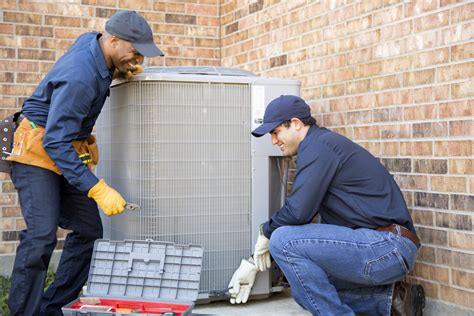
It is an annual dilemma how humans can beat the heat seeing how the temperatures seem to go up higher and higher as the years go by. The public comes up with all sorts of tips and tricks to overcome the heat and survive the next couple of months when the sun is shining in all its glory. It’s the time of the year when homes are buzzing from the sound of air conditioners working 24/7 to keep everyone the household cool and comfy all day long.
Unfortunately, not everyone can afford to have an extensive cooling system installed in their homes. Not to mention that electric bills will skyrocket during summertime and people would rather spend their money on food rather than pay for costly cooling fees. Yet it is a cycle we all can’t avoid as the seasons change every single year.
With a rising population of the indoor generation, it is even more crucial to have indoor AC installed because the home will feel like one hot furnace without it as the heat of the sun seeps through into the very confines of your abode.
As temperatures warm up and people spend more time outdoors, the risk of heat-related injuries increases. Paramedics with the Nashville Fire Department said they typically see more cases between Memorial Day and Labor Day. For anyone planning to spend extended time outdoors, remember to take steps to stay hydrated. Some symptoms of heat stroke include dizziness, a rapid heart beat, and exhaustion.
If you are brave and adventure enough, summer is actually the perfect time to stay outdoors. There are lots of things you can do and as long as you stay in the shade, you won’t be bothered by the sun that much. You can unleash the inner child in you and engage in all sorts of outdoor summer activities that will turn into fond memories as the years go by.
Why stay cooped up at home when there are plenty of things you can do and enjoy as long as you are careful enough to protect yourself from a potential heat stroke. It is even the perfect excuse to break out into a sweat and burn some fats, so it is the silver lining you have been waiting for all along.
Most people we spotted at Memorial Park took breaks in the shady spots when they could, and aren’t taking any chances when it comes to their health. Justin Moore has a cooler and a plan.
“I suffered a heat stroke when I was in high school, so it took a lesson for me to learn. Stay hydrated. I just wanted to tell all the people of Houston ‘drink up and drink a lot of water,'” said Moore.
If you get heat exhaustion you’ll feel faint or dizzy and have excessive sweating. You may also experience nausea or vomiting, have a weak or rapid pulse, muscle cramps and may have clammy skin. A heat stroke is more severe. You’ll have a throbbing headache without sweating. You could also get nauseous or vomit — but your pulse will remain rapid, your body temperature will rise and you could lose consciousness.
Full article at ABC13.
No matter how careful you are, though, there is always the risk of suffering from heat stroke, getting dehydrated or sunburnt, or something else when out in the sun. We all are unique and respond differently to the elements. Just be on the watch out for the potential signs of heat stroke such as:
- Feeling dizzy
- Excessive sweating
- Nausea and vomiting
- Weak or rapid pulse
- Muscles cramps
- Cool, clammy skin
If you feel any of these symptoms, get under the shade or indoors and stay away from the heat. Enjoy the coolness of the AC and drink plenty of water. Allow your body to cool down before going out once more.
To avoid heat-related illness, the Houston Health Department recommends:
- Increase water consumption. Drink lots of liquids even before getting thirsty, but avoid those with caffeine, alcohol or large amounts of sugar because these can actually result in the loss of body fluid.
- Conduct outdoor work or exercise in the early morning or evening when it is cooler.
- Wear light-colored, loose fitting clothing that permits the evaporation of perspiration.
Simple measures like the ones mentioned above can actually save a life. With the reality of global warming and client change being a lingering threat to all of us, facing the elements isn’t what it used to be. The temperatures are more extreme and there are more risk factors now that can exacerbate your condition such as severe pollution, among others.
Familiarize yourself with the common remedies for heat stroke, so as not to reach the point where you have to be hospitalized to be hydrated. Always be alert when outside the house. Don’t force yourself to enjoy the sun if you don’t feel like it. Enjoy the comforts of modern air conditioning as long as you can pay for it.
If you’re looking for a local HVAC professional to help you reduce cooling costs, contact us today!